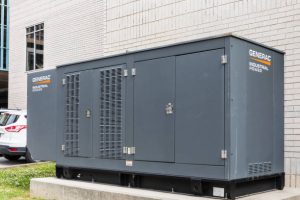As the temperatures begin to drop, it’s important to get your home ready with winter prep. One often overlooked but essential aspect of your winter preparations is ensuring your generator is ready to take on the cold weather. At Automated Home Generators, we specialize in helping homeowners keep their power running, no matter the season. Here’s how you can prepare your generator for winter and avoid any cold-weather surprises.
Why Winter Prep for Your Generator Matters
Winter can be harsh on your generator. From frigid temperatures to unpredictable storms, your system needs to be in top condition to provide reliable backup power when you need it the most. Routine winter preparation can prevent issues like freezing fuel lines, battery failure, or insufficient power during outages. Taking the right steps will ensure your generator runs smoothly and efficiently throughout the winter months.
1. Test Your Generator Regularly
Even if you haven’t experienced a power outage yet, it’s important to test your generator. Running it for about 20 to 30 minutes each month ensures that the system is in good working order and ready to spring into action when needed. Winter conditions can stress your generator, so this routine will help you catch potential problems before they become an emergency.
2. Change the Oil and Replace the Air Filter
Oil and air filters play an essential role in your generator’s performance. Make sure you replace the oil according to the manufacturer’s recommendations. Cold weather can make old oil more difficult for the engine to circulate, so starting with fresh oil will ensure that your generator runs smoothly when you need it. Additionally, check and replace the air filter to ensure that air flows efficiently to the engine.
3. Fuel Maintenance: Prevent Freezing Fuel Lines
Fuel can freeze in extreme cold, especially if the fuel tank is not kept full. A full tank minimizes the chances of condensation, which can lead to fuel line freezing. If your generator uses propane, ensure that the tank is full or at least at 80% capacity. For gas-powered models, consider using a fuel stabilizer to prevent ethanol buildup and degradation during long periods of non-use.
4. Check the Battery
Cold weather is tough on batteries, so make sure to check your generator’s battery in advance. A battery in poor condition may struggle to start your generator when you need it. If your generator is older or the battery seems weak, consider replacing it before the cold sets in. Also, clean any corrosion from the battery terminals to ensure a secure connection.
5. Clear the Area Around Your Generator
Winter weather can bring snow, ice, and debris that can block the vents or exhaust pipes of your generator. Make sure the area around your generator is clear of snow, ice, and other obstructions. If necessary, install a cover or shelter to protect your generator from snow accumulation while allowing for proper ventilation.
6. Test the Transfer Switch
A transfer switch is responsible for safely transferring power from the generator to your home’s electrical system. Make sure the transfer switch is working properly by running through a test cycle. If there are any issues with the switch, get them addressed before you face a power outage. This ensures that your generator will operate safely and smoothly during an emergency.
7. Schedule a Professional Inspection
If you’re unsure whether your generator is ready for the season, it’s a good idea to schedule a professional inspection. At Automated Home Generators, we offer comprehensive inspections to make sure your generator is fully prepared for winter. Our team can perform an in-depth evaluation and take care of any necessary maintenance or repairs.
Don’t Wait – Prepare Your Generator for Winter Today!
Winter storms can hit unexpectedly, and you don’t want to be caught off guard without a functioning generator. Take the time to prepare your generator for the colder months to ensure your home stays powered when you need it most. Automated Home Generators is here to help with all your generator maintenance and installation needs.
If you haven’t already scheduled your winter inspection, now is the time to act. Contact us today to ensure that your generator is winter-ready and ready to protect your home from power outages.






